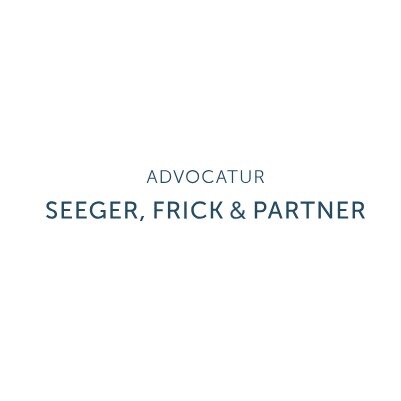Best White Collar Crime Lawyers in Schaan
Share your needs with us, get contacted by law firms.
Free. Takes 2 min.
List of the best lawyers in Schaan, Liechtenstein
About White Collar Crime Law in Schaan, Liechtenstein
White Collar Crime in Schaan, Liechtenstein, encompasses a range of non-violent, financially motivated crimes typically committed by business professionals and government officials. These crimes generally involve deceit, breach of trust, or manipulation and include offenses such as fraud, embezzlement, insider trading, and money laundering. Liechtenstein has stringent laws and regulations to combat White Collar Crime, integrating local measures with broader international standards to maintain its reputation as a legitimate financial hub.
Why You May Need a Lawyer
Legal expertise is crucial when dealing with White Collar Crimes due to the complexity and seriousness of these offenses. Common situations where individuals may require legal assistance include being investigated or charged with fraud, facing allegations of financial misconduct, dealing with compliance issues in financial regulations, or representing a company involved in litigation. A skilled lawyer can provide expert advice, help navigate the legal system, and work to mitigate potential penalties.
Local Laws Overview
Liechtenstein's legal system incorporates a variety of laws to address White Collar Crime. Key aspects include:
Penal Code: The Penal Code outlines specific offenses and corresponding penalties for crimes such as fraud, forgery, insider trading, and embezzlement.
Financial Market Authority (FMA) Regulations: The FMA oversees the financial sector and enforces compliance with anti-money laundering and counter-terrorism financing measures.
International Cooperation: Liechtenstein collaborates with global enforcement agencies, participating in treaties and agreements to aid in the prevention and prosecution of international financial crimes.
Corporate Governance: Regulations surrounding corporate governance ensure transparency and accountability within organizations, aiming to prevent financial misdeeds.
Frequently Asked Questions
1. What constitutes White Collar Crime in Liechtenstein?
White Collar Crime refers to non-violent, financially driven offenses committed by individuals or organizations, including fraud, embezzlement, tax evasion, and money laundering.
2. How are White Collar Crimes investigated in Schaan?
White Collar Crimes are investigated by local law enforcement agencies, often in conjunction with the Financial Market Authority (FMA). International cooperation may also be involved for cross-border cases.
3. What are the penalties for committing White Collar Crime in Liechtenstein?
Penalties can vary, ranging from fines and restitution to imprisonment. The severity of the penalty depends on the nature and extent of the crime.
4. Can a company be held liable for White Collar Crime?
Yes, companies can be held accountable for financial misconduct committed by their employees if it is shown that the company benefited from or failed to prevent the illegal activities.
5. What should I do if I suspect White Collar Crime in my organization?
Consult with a legal expert immediately to understand your obligations and rights. It may also be necessary to report the suspicion to relevant authorities such as the FMA or law enforcement.
6. Are whistleblowers protected under Liechtenstein law?
Yes, there are legal provisions to protect whistleblowers from retaliation when they report illegal activities or misconduct within an organization.
7. What is money laundering, and how is it regulated?
Money laundering involves concealing the origins of illegally obtained money, often through complex financial transactions. Liechtenstein’s laws, in line with international standards, mandate stringent anti-money laundering measures for financial institutions.
8. Can legal counsel help mitigate penalties in a White Collar Crime case?
Yes, experienced legal counsel can negotiate on your behalf, potentially reducing charges or penalties by presenting mitigating circumstances or working out plea agreements.
9. Is it possible to settle White Collar Crime cases out of court?
While some cases might be settled out of court through negotiations or settlements, others, especially those involving severe allegations, may require a court trial to resolve.
10. How do international laws impact White Collar Crime cases in Liechtenstein?
As a member of various international treaties and agreements, Liechtenstein adheres to global standards in combating White Collar Crime, allowing for cross-border cooperation in investigations and enforcement.
Additional Resources
Financial Market Authority (FMA): The regulator for financial compliance and enforcement in Liechtenstein.
Liechtenstein Chamber of Lawyers: A body ensuring professional standards and ethics within the legal profession.
Interpol: Facilitates international cooperation in combating global financial crimes.
OECD: Provides guidelines and frameworks for combating bribery and corruption on an international scale.
Next Steps
If you suspect or are involved in a White Collar Crime case, the first step is to seek legal advice from a qualified lawyer experienced in financial crime law. Do not make any statements or take action without consultation. Gather all relevant documentation and contact a legal professional who can guide you through the process and represent your interests in any proceedings.
Remember, time is often of the essence in legal matters, and early intervention can significantly affect the outcome of your case.
Lawzana helps you find the best lawyers and law firms in Schaan through a curated and pre-screened list of qualified legal professionals. Our platform offers rankings and detailed profiles of attorneys and law firms, allowing you to compare based on practice areas, including White Collar Crime, experience, and client feedback.
Each profile includes a description of the firm's areas of practice, client reviews, team members and partners, year of establishment, spoken languages, office locations, contact information, social media presence, and any published articles or resources. Most firms on our platform speak English and are experienced in both local and international legal matters.
Get a quote from top-rated law firms in Schaan, Liechtenstein — quickly, securely, and without unnecessary hassle.
Disclaimer:
The information provided on this page is for general informational purposes only and does not constitute legal advice. While we strive to ensure the accuracy and relevance of the content, legal information may change over time, and interpretations of the law can vary. You should always consult with a qualified legal professional for advice specific to your situation.
We disclaim all liability for actions taken or not taken based on the content of this page. If you believe any information is incorrect or outdated, please contact us, and we will review and update it where appropriate.









